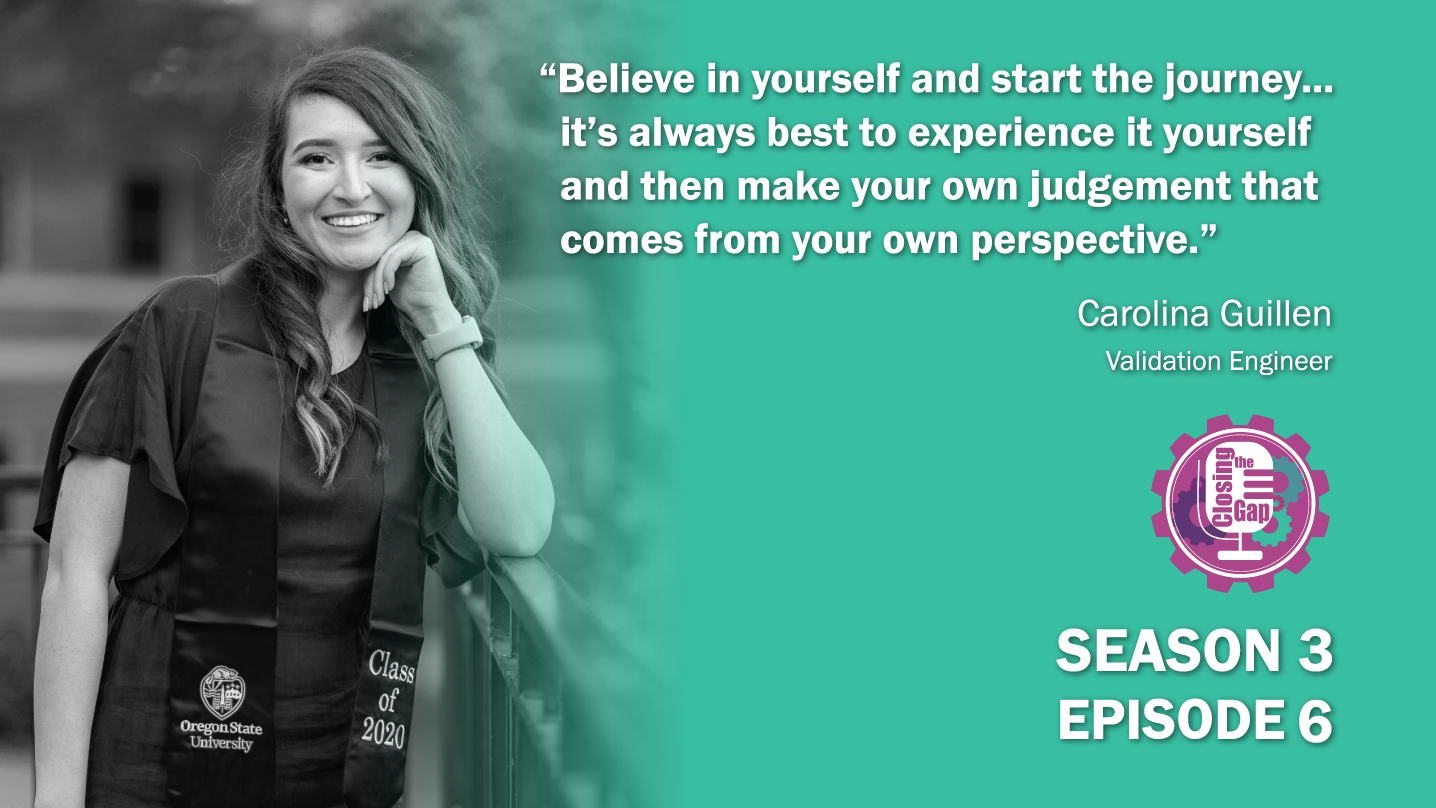Tune in as we speak with engineer, Carolina Guillen (she/her) on the podcast. Carolina immigrated with her family to the United States from Mexico as a teenager. We will talk about her experience growing up in Albany, Oregon, and receiving her bioengineering degree from Oregon State University.
Q: Please describe your educational/training background.
I recently graduated from Oregon State with a degree in bioengineering.
Q: Please describe where you work & your occupation.
I currently work at Genentech as a Validation Engineer
Q: Career-wise, what have been your proudest moments/highlights/accomplishments so far?
It’s hard to pick just one, but if I had to narrow it down to one thing it would be finding my current role. Before having my internship at Genentech I had no idea that validation roles existed in the industry or what it meant to be a validation engineer. I started out doing undergraduate research in my freshmen year, but one thing that I didn’t enjoy was the slow process of it. I worked on a herniated spinal disc project for about 4 years, and we were still far from testing on animals. One thing that I love about the validation work at Genentech is the direct impact we have on patients. Additionally, I love the balance of being able to still grow and practice my engineering skills while also being able to organize outreach events; which is something I am very passionate about.
Q: What are some of your future goals or things you would like to accomplish?
I’d like to become a subject matter expert on the work that is performed on all three of the production lines we have at Genentech while also being able to coach interns to hopefully inspire them and share my passion for STEM with them. I feel like I had great role models/mentors along the way so I’d like to become as awesome as them and improve my mentoring skills.
Q: What have been some of your biggest career challenges?
Starting out in the work industry in the middle of a pandemic. My job is very hands on so it was hard to pick up what was going on without physically being there and seeing things first hand. I’m a visual learner, so I had to develop new ways for me to try and understand how I could best help the team. Not to mention that once I started working full time, it was my first time ever moving out of my home, so it was a lot of new things at once. Part of my Hispanic culture involved the family eating together and spending quality time at the end of the day… at some points it got lonely living on my own. It also somewhat reminded me a lot of when I first started college and I had to figure out how it all worked as my parents never went to college in the US, and I’m an only child. Therefore, I wasn’t able to ask my older siblings what FAFSA was, etc. I felt the same way out in the industry as my parents didn’t quite understand what exactly I do at work.
Q: Many young women might not be aware of the career available in STEM fields. What do you think can be done to spread the word to women about career options in these fields?
I think attending industry panels, applying for internships, doing undergraduate research, volunteering, and performing informational interviews is a great way to learn about other careers in STEM amongst other things.
Q: Do you have any advice for women who are looking to follow in a similar career path?
Apply for internships, do undergraduate research, or volunteer in the areas you are curious about. Talk to people who currently are in those roles you are curious about. Believe in yourself and start the journey. This way you know first hand what it’s like and if you like it. Don’t just believe things people say, it’s always best to experience it yourself and then make your own judgement that comes from your own and lived perspective.
Q: What do you like to do for fun in your spare time?
I like to take my dog hiking, volunteer, do outreach activities, salsa dance with my boyfriend, spend time with family and friends, travel, try new things (this weekend I’m going mountain biking for the first time ever), and try new foods.


